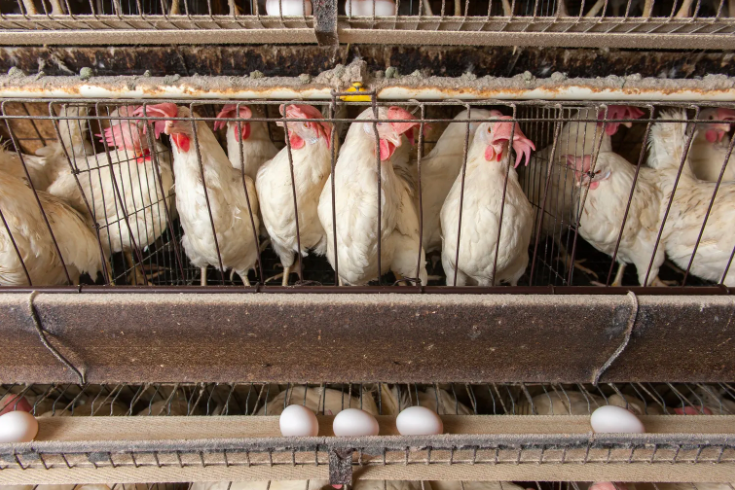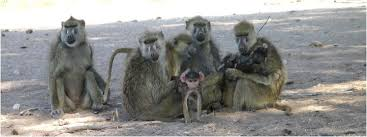Agenda
- Octopus farming, anyone?
- Review for final
- Writing the "objections" section of your paper.
- Reminders--quotation rules, honor code, chat GPT
- Final next Friday 3-6 in this room.
- Intensive octopus farming?
- What do we need to know about their minds to decide whether this is bad?
- Singer's answer
- Wise's answer
- Andrews's answer
- Taking into account political categories
Review for final
Topics and posts are below. We'll review based on the questions below, plus your questions. These review questions are not actual exam questions and don't represent everything you need to know!
Add your questions to the workbook--QR code to the right.
_________________________
March 26 Self Awareness: Prof. Howell
- Why did he say self-awareness is "pathological"?
- What did he say about how often we are self-aware?
March 28 Self Awareness: DeGrazia's report card; mirror tests; episodic memory (past); episodic memory; (future); self-monitoring
Self Awareness
- Why does DeGrazia think having desires is at all relevant to self-awareness?
- Why is episodic memory relevant to self-awareness?
- Episodic memory and anticipating the future are both types of ________?
- The spoon test is a test of what?
- Gallup was the first to argue that passing the mirror test is evidence of self-awareness. What iare some alternative hypotheses?
- Which of these animals pass the mirror test--apes, baboons, other monkeys, dogs, cats, elephants?
April 4 Can animals think? (1) Descartes--animals can't think at all; animals solving novel problems; the vehicles of representation; Chalmers, extended mind; spider webs as "mind outside the head"
- Why did Descartes say that animals can't think at all?
- What is extended mind? What is Chalmers' example of extended mind?
April 6 Can animals think? (2): What is thinking/not thinking?; scientific debate; do animals have beliefs and desires?; Steven Stich--why animals have beliefs; Steven Stich--why animals don't have beliefs.
- What are propositional attitudes?
- What is Stich's argument that animals don't have beliefs?
April 11 Social Skills: knowledge of social status (baboons, Cheney & Seyfarth); vocalizations as communication vs. language; imitation in monkeys (Wynne); do animals have theory of mind?; do they have culture?
Baboons
- How do Cheney and Seyfarth study what baboons know about each others' social status?
- Cheney and Seyfarth say animals have a "language of thought" but don't use language to communicate. Why do they say these things?
- The potato washing monkeys of Koshima, Japan, seem to imitate each other. Wynne says we should always consider alternative hypotheses. What's his alternative hypothesis in this case?
- What alternative hypothesis does Wynne favor when he looks at experiments that seem to show theory of mind in animals?
Premack and Woodruff
- What is theory of mind?
- What facet of theory of mind were Premack and Woodruff testing for in their 1978 study?
- One alternative hypothesis is that the chimpanzees in the 1978 study were just engaging in "behavior reading" not "mindreading." What's the difference?
- What is the false belief test? When do children pass it?
- In Krupene, Kano et al (2016), how do they measure whether chimpanzees pass the false belief test?
- What's an experiment that shows chimps have some understanding of other apes seeing?
- Could the experiment in 1 demonstrate behavior reading, not mindreading?
- What's an experiment that show they have limited understanding of seeing?
April 18 Morality in Animals: theory of mind recap; Frans DeWaal on empathy in animals; video: cooperation, empathy, reciprocity, fairness
- There are many different concepts under the empathy umbrella. How are contagion and empathy different?
- How did DeWaal show there is a sense of fairness in capuchin monkeys?
- Does DeWaal succeed in showing that some animals have the precursors of morality?
April 20 Animal Minds, Human Ethics: Frans DeWaal & social contract view; Wise and the NonHuman Rights Project; Liberty for Elephants Argument (Wise); rights elitism
- What does the Non-human Rights Project do for animals?
- Why does Steven Wise think animals do have rights? (Which animals have rights on his view?)
- Why does DeWaal think animals don't have rights?
- For ethicists with the rights approach, what do we need to know about octopuses to decide whether they have rights?
April 25 Animal Minds, Human Ethics: Overview; Singer on equal consideration; insects and extermination; utilitarianism; rights approaches; political categories
- What is Singer's argument that we should give equal consideration to chickens?
- Does Singer think that equal consideration means treating chickens and chimpanzees just alike?
- For ethicists like Singer who take a utilitarian approach, what do we need to know about octopuses to decide whether they are "moral patients"?
- We treat our dogs very differently than we treat coyotes in my neighborhood. How might we use political categories to explain why this is right?




























